Antal E. Fekete: That Accursed Propensity to Save
THAT ACCURSED PROPENSITY TO SAVE
by Antal E. Fekete,
Professor of Money and Banking
San Francisco School of Economics
March 9, 2009
“Thank Heaven for little Keynesian Nobel laureates… without them what would little Keynesian Treasury secretaries do?...”
At the long last we got the official explanation how we got into this mess. In his March 2, 2009, column in The New York Times under the banner title Revenge of the Glut Paul Krugman tells us, quoting the authority of the Chairman of the Fedreal Reserve Ben Bernanke, that it is all the fault of the Asians. They save damn too much. They test the endurance of unhappy Americans who bankrupt themselves in trying to work off all that darned excess saving fast enough before it can do more damage. Even though they do their level best, they could not keep up with the prodigious output of the Asians and “global savings glut” is the result. It was the cause of the U.S. current account deficits in the first place; now it is causing more mischief by creating turmoil in the financial markets and in the banking system. In this scenario, the good guys are the Americans. They are heroically trying to stave off disaster through their unselfish consumption. The bad guys are the Asians, tormenting their American victims in force-feeding them with overdoses of consumer goods all the way to the bankruptcy court.
Although Krugman does not say it, the implication is all too clear: there is one especially pernicious form of saving, namely, saving in the form of gold. Keynesians, through half a century of hard work, ably assisted by their Friedmanite comrades, have developed a highly efficient system to embezzle, unobserved, superfluous savings in an antiseptic way. Their sophisticated contra-saving devices through currency debasement anesthetize those bastard savers so that they can be pilfered and plundered without touching a raw nerve. It is a clean job, causing a minimum of commotion.
Unfortunately, these methods do not work on those who do their vicious anti-social saving in the form of gold. These guys will have to be taken care of by other means, such as threats of central bank gold sales, bubble-bursting and price-busting techniques in the paper gold markets, and other similar tactics. If everything else fails, the guillotine could be reactivated as an instrument of monetary policy, last used in this way during the French Revolution. At that time, if you were found in possession of undocumented gold, your head would be chopped off in summary justice.
* * *
It is very doubtful that in the long and checkered history of science there is another episode comparable to this deliberate misuse and abuse of knowledge for the exploitation of those who do not have the full complement of it. What makes it particularly odious is that Keynesian obscurantism and anti-scientific propaganda is put in the service of a hidden agenda: to cover up the mismanagement of the economy through Keynesian precepts, the sabotaging of human cooperation under the system of division of labor, and the destruction of capital through the corruption of the monetary system.
The monetary system was developed to serve and protect society as a whole: savers as well as consumers. After all, at some point during our lives we are (or ought to be) savers, so that later, in our harvest years, we could be consumers. If it does not work in the opposite order, Mother Nature is to be blamed. Saving always and everywhere had to precede consumption. Saving has always been primary and consumption secondary, like it or not.
But Keynesians have overthrown Mother Nature. They say that it is possible to have consumption without prior saving. Having corrupted our monetary system and having destroyed society’s capital, Keynesians have rendered people unable to fend for themselves. They treat them as they would treat livestock in the feedlot. In exchange for fattening them (in preparation for the slaughterhouse) livestock is being relieved from the need to gather feed in the summer for winter consumption. Keynesians, self-styled directors of the national economy, reserve the job of the feedlot operator to themselves. They declare savings and capital obsolete. Synthetic credit manufactured at the central bank in the service of collectivism is used as a substitute.
It would be well if Keynesians took to heart the astute observation of Glenn Prickett, Senior V.P. at Conservation International, that “Mother Nature doesn’t do bailouts.”
* * *
Apparently it has never occurred to Krugman that the present disaster is not due to his imaginary savings glut but, rather, to the imperfections of the monetary system. Why can’t we have a monetary system that allows people to save to their hearts’ content? Why do we have to have one that sets up the Treasury and the Federal Reserve as partners in the crime of check-kiting? Maybe the idea of delegating unlimited power to these agencies was not such a good idea after all. Maybe the U.S. Constitution imposed a wise limitation on the power of government in refusing to sanction irredeemable currency. Maybe no one should have the privilege to issue liabilities without assuming countervailing responsibilities. Maybe our corrupt monetary system carries the seeds of self-destruction in allowing structures like the quadrillion-dollar strong derivatives tower to get conceived and grow beyond all limits until it topples on the people of Babel. Why is questioning the efficacy of our monetary system taboo anyway? All these questions are side-stepped by Krugman as he trots out that old Keynesian war-horse, the theory of oversaving.
* * *
There is just one disturbing element in Krugman’s centrally planned economy. It is the golden thorn in the Keynesian flesh. It is gold, the barbarous relic. Man’s greedy little palm is itching to touch the stuff. Visual contact in museums, churches and art galleries will not suffice. Keynesians have a job here that has been cut out for them: they have to ‘educate’ people that wanting gold is like wanting the moon. They can’t have that; at any rate, green cheese is just as good, and the government has an efficient green cheese factory, the central bank, that can manufacture it in unlimited quantities. Those who like gold had better learn to like green cheese.
By the way, this is vintage Keynes. It is in the Bible: the moon, the green cheese factory and all, entitled The General Theory, written by the Prophet in 1936. Go look it up, and see it for yourself. It shows Keynes’ cynicism and his infinite contempt for the intelligence of others.
We are anxiously waiting to see how the pupils of the Prophet will deal with this piece of unfinished business: to cure man of auri sacra fames, “the accursed hunger for gold” (Virgil, Aeneid, III. 57.)
* * *
Krugman ends his piece on an alarmist note. The savings glut is still out there, ready to gobble us all up. In fact, it is bigger than ever, now that suddenly impoverished consumers have rediscovered the virtues of thrift; now that the worldwide boom which provided an outlet for all those excess savings has turned into a worldwide bust.
One way to look at the international situation right now, Krugman says, is that we’re suffering from the “global paradox of thrift”. Around the world savings exceed the amount that businesses are willing to invest. And the result is a global slump that leaves everyone worse off. The implication seems to be that we need a savior. We need someone to save us from ourselves and our own destructive saving habits. The government is our savior. It can tax savings up to 100 percent.
* * *
It is hard to imagine a worse way of standing facts upon their head. The exact opposite is true what Krugman has the cheek to suggest. The falling interest-rate regimen inspired by Keynes has destroyed capital across the board. The only way to replace or to replenish it is through saving. Krugman adds insult to injury when he suggests that there is too much saving in the world, where in fact there is too little, and that this glut is the reason why businessmen have stopped investing. So it falls upon the government to take up the slack and start spending ourselves into prosperity. Krugman’s is a recipe for the ruination of what is left of the world economy. The trouble is that he and his cohorts at the Treasury and the Federal Reserve have all the means of coercion at their disposal to finish off the job. They control the monetary system, they control taxation, they control the White House. They also control the guillotine that is being dusted off just in case it may be needed again as an instrument of monetary policy.
* * *
There you have it: Krugman’s theory of the savings glut, and my theory of wholesale capital destruction in the world as a result of serial halving of the rate of interest by Keynesian monetary policy. I am ready to submit my thesis to a public debate that it was Keynesian measures that started capital destruction I warned about already eight years ago. If they had any decency, Keynesians should admit that they were wrong and let others come in with the new Obama administration and repair the damage. After all, Keynesians have amassed unprecedented power in Washington with their savings glut fable once before. There is absolutely no reason why they should be given a second chance to try their half-baked theory of oversaving on innocent people. But the idea of giving up power has never crossed their mind. They just won’t, even if blood is flowing on the streets of Detroit and Los Angeles. That’s the nature of the so-called Keynesian revolution. It is not a branch of economic science; it is a branch of Leninism, a blend of collectivist ideology reinforced with unmatched expertise on conspiracy, street fighting and barricades.
* * *
In a nutshell, here is my theory of wholesale destruction of capital as a result of Keynesian monetary policy of serial halving of the rate of interest. The regime of falling interest rates is lethal to businesses, whether financial or producing. It makes businessmen lethargic: they understand that the falling interest-rate environment makes their investments go sour. It clandestinely wipes out capital through increasing the liquidation value of debt on past borrowings. Lower rates are not helping business as Keynesian propaganda suggests, because the issue is not the cost of future borrowing. The issue is the historic cost of past borrowings that has rendered existing investments unprofitable.
Chartered accountants and bank examiners ignore the erosion of capital due to falling interest rates, most likely with the connivance of governments if not on direct order from them. So there is no advance warning, and the destruction of capital presents a surprise fait accompli. When it hits, it is already too late to do anything about it.
The wholesale destruction of capital is a social disaster of the first magnitude, in many ways worse than the destruction of physical capital due to war, precisely because wartime damage is expected and preparations are made to cushion it. Capital accumulation is the result of decades or even centuries of arduous saving by hundreds of millions of individuals that, nevertheless, can be frittered away in a matter of a few years. To rebuild the capital base of society will take a concentrated effort to save for decades to come. This great task of reconstruction is certainly not being helped, rather, it is being sabotaged by the vicious Keynesian agitation about a mythical savings glut.
* * *
Gold offers the only ray of hope in an otherwise thoroughly gloomy picture. Gold represents that hard core of capital that cannot be destroyed by the credit collapse. Gold is the only asset that survives any consolidation of balance sheets. Other bank assets tend to be canceled out upon the nationalization of banks. At any rate, they are subject to counter-party performance that becomes questionable in a credit collapse. Gold has no counter-party liability.
If our civilization is to survive, it will have to make a head start in rebuilding capital, the sooner the better. It cannot start capital accumulation from scratch. It must enlist gold in the reconstruction effort. One ounce of gold will go farther than all the make-belief credits created out of the thin air by all the defunct central banks of the world.
This is the triumph of gold: it can be bad-mouthed all the Keynesians want. But gold and those who control it will have the last laugh.
***
Labels: Antal Fekete, gold, gold standard















![[Most Recent Quotes from www.kitco.com] [Most Recent Quotes from www.kitco.com]](http://www.kitco.com/images/live/t24_au_en_usoz_6.gif)
![[Most Recent Quotes from www.kitco.com] [Most Recent Quotes from www.kitco.com]](http://www.kitco.com/images/live/au_go_0030_ny.gif)
![[Most Recent Quotes from www.kitco.com] [Most Recent Quotes from www.kitco.com]](http://www.kitco.com/images/live/au_go_0365_ny.gif)
![[Most Recent Quotes from www.kitco.com] [Most Recent Quotes from www.kitco.com]](http://kitconet.com/charts/metals/silver/t24_ag_en_usoz_4.gif)




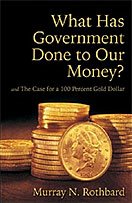

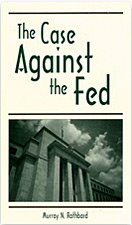

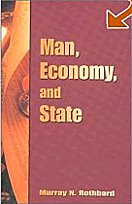

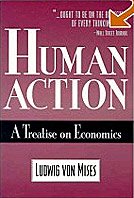
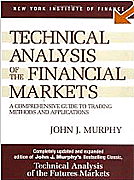





0 ΣΧΟΛΙΑ (COMMENTS):
Post a Comment
<< Home